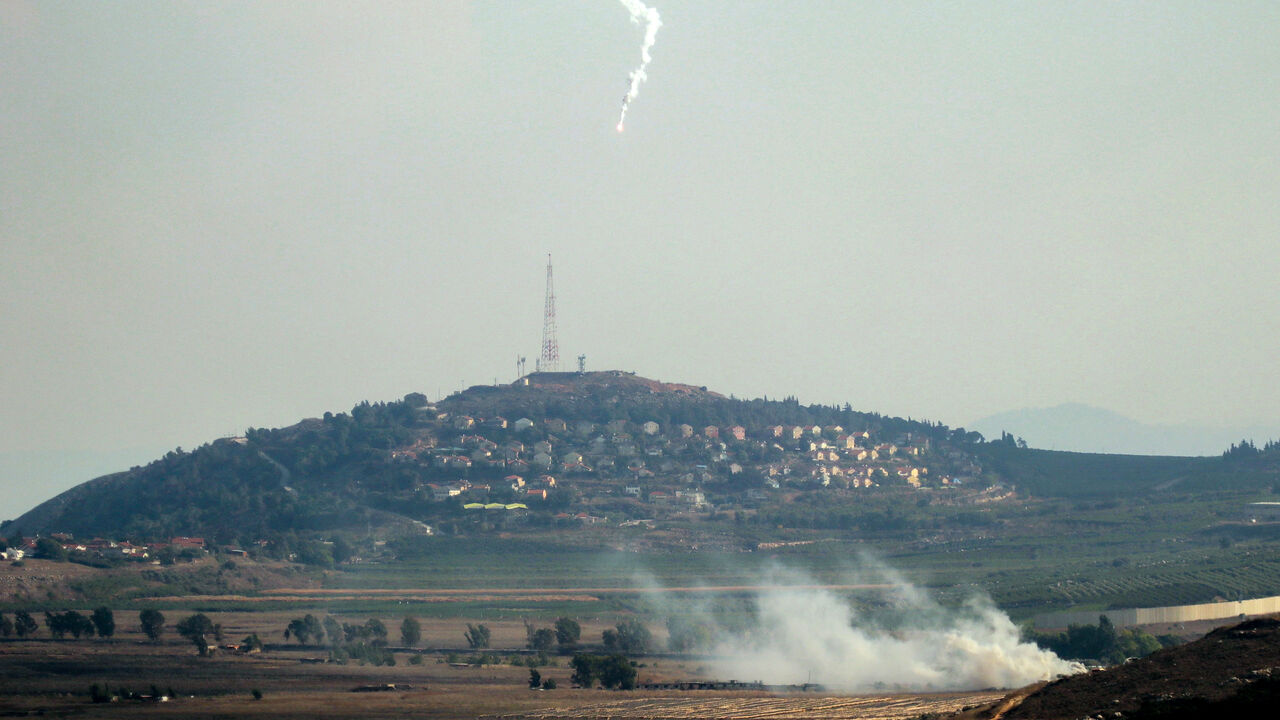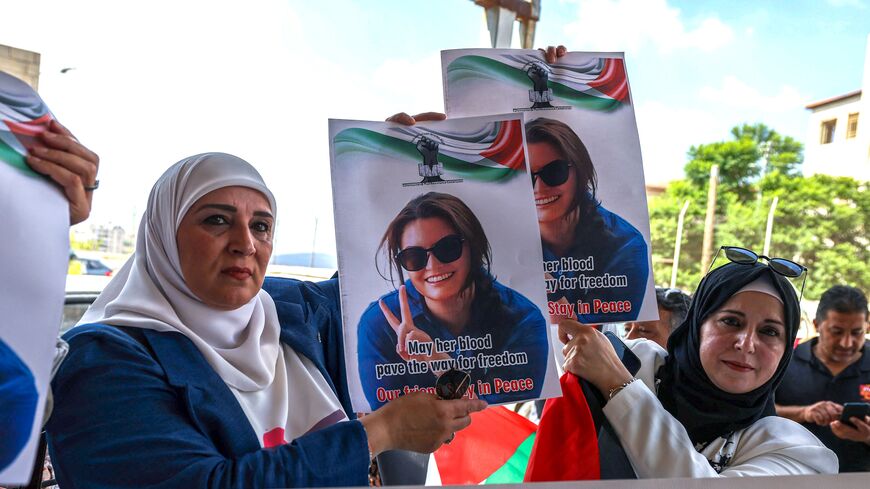Israel braces for possible 'all-out' war against Hezbollah, Iran proxies
US Sen. Chris Van Hollen calls for Israeli accountability in death of Turkish American citizen; UAE transports sick and wounded from Gaza; Saudi Arabia grapples with low oil prices … and advances Vision 2030 military reform.

This is just a taste of what you are missing if you are not subscribed to Al-Monitor this week:
- Ben Caspit has the scoop on Israel’s plans to confront Iran’s "belt of fire."
- US Sen. Chris Van Hollen’s demands for Israeli accountability for the death of a Turkish American in the West Bank, in Elizabeth Hagedorn’s Takeaway.
- Jennifer Gnana’s firsthand report from Abu Dhabi on the UAE’s evacuation of critically injured Palestinians from Gaza.
- Two superb analyses on Saudi Arabia: the first on how low oil prices may be affecting the kingdom’s giga-projects, by Jennifer Gnana and Sam Wendel; and another on how Vision 2030 reforms are improving Saudi military efficiency, by Francesco Schiavi.
Sign up for Al-Monitor here.
From Tel Aviv: Israel readies plan to confront Iran’s ‘belt of fire’
Israel’s destruction of an Iranian-controlled precision missile facility in Syria on Sept. 8 may be prelude to a wider escalation with Hezbollah in Lebanon and other Iranian-backed militias, Ben Caspit reports from Israel.
“The sides are bracing for an all-out war with Hezbollah and other Iranian-backed militias,” writes Caspit.
The Biden administration wants it both ways with its pressure to restrain Israeli escalation: to maintain the threat of the impermanence of the enhanced US military deployment, while reassuring Israel, and warning its adversaries, that the United States has its back in the event of an attack. Although the United States may have withdrawn the aircraft carrier USS Roosevelt last week, the guided missile submarine USS Georgia has taken its place.
As we wrote here last week, Israeli Prime Minister Benjamin Netanyahu knows the decisions run through him. The effect of US pressure is minimal. The White House doesn’t want an escalation, but the United States will come to Israel’s defense if war breaks out with Hezbollah and other Iran-linked proxies along the so-called belt of fire described by Caspit.
"Netanyahu has more than one reason to go for a military operation at this time," a senior Israeli political source told Al-Monitor on condition of anonymity. The senior Israeli political source said Netanyahu needs to delay or cancel his scheduled December testimony in his criminal trial for bribery and fraud, help presidential hopeful Donald Trump defeat Vice President Kamala Harris in November and delay an expected inquiry commission into the Oct. 7 catastrophe that could highlight his responsibility.
From Washington: Van Hollen calls for Israeli accountability in death of US citizens
Biden administration officials “frequently say they have ‘no higher priority’ than the safety and protection of American citizens around the world,” writes Elizabeth Hagedorn. “And yet Biden has so far resisted growing calls for an independent investigation into the Israeli military’s killing of a US citizen in the occupied West Bank last week.”
Israel said Tuesday that Turkish-American woman Aysenur Ezgi Eygi, 26, may have been “unintentionally” shot when its military responded to a riot in Beita, but an investigation from The Washington Post said the protesters were already 200 yards away from Israeli soldiers at the time of the killing.
“The Biden administration should not allow the Netanyahu government to stonewall them,” US Sen. Chris Van Hollen, a member of the Foreign Relations Committee, told Al-Monitor. “I've been in touch repeatedly with the Biden administration about these killings, and it's very clear that they're not doing enough to get answers and to get accountability and justice.”
From Abu Dhabi: UAE evacuates critically wounded from Gaza
The United Arab Emirates evacuated 252 people from the Gaza Strip this week, the second flight in its ongoing efforts to provide humanitarian aid and medical care for Palestinians affected by the Israel-Hamas war.
"This is one of the initiatives for the ones who can fly and for the ones who do get approved to get out," Maha Barakat, medical doctor and assistant minister for Health and Life Sciences at the UAE Ministry of Foreign Affairs, told Jennifer Gnana. "We bring them here to treat them, and we have a humanitarian city where their relatives can stay … we can look after them until they're well enough to go back."
Over 41,000 Palestinians have been killed in Gaza and over 90,000 injured as a result of the Israeli offensive following Hamas’ attack on Israel, which left 1,200 Israelis dead and 250 taken hostage.
Analysis: Can Saudi Arabia afford giga-projects with oil prices under $75 per barrel?
“Riyadh could soon run a current account deficit as oil revenue declines amid huge spending commitments toward ambitious Vision 2030 projects,” write Jennifer Gnana and Sam Wendell, “and Saudi-led OPEC has deferred an output increase plan to allow more time to reach desired oil prices.”
OPEC+ has postponed its decision in June to unwind production cuts, as Saudi Arabia, the world's largest exporter of oil, grapples with persistent low oil prices, which are below the level Riyadh needs to balance its books and meet its multibillion-dollar spending commitment, they write.
Analysis: Saudi Vision 2030 military reform advances
“Saudi Arabia has significantly reorganized its senior military leadership through recent high-level appointments, reflecting the royal family's commitment to reforming the kingdom's armed forces in line with Vision 2030,” writes Francesco Schiavi. “This move aims to boost military efficiency, address long-standing challenges and help the armed forces catch up with more advanced regional competitors.”







